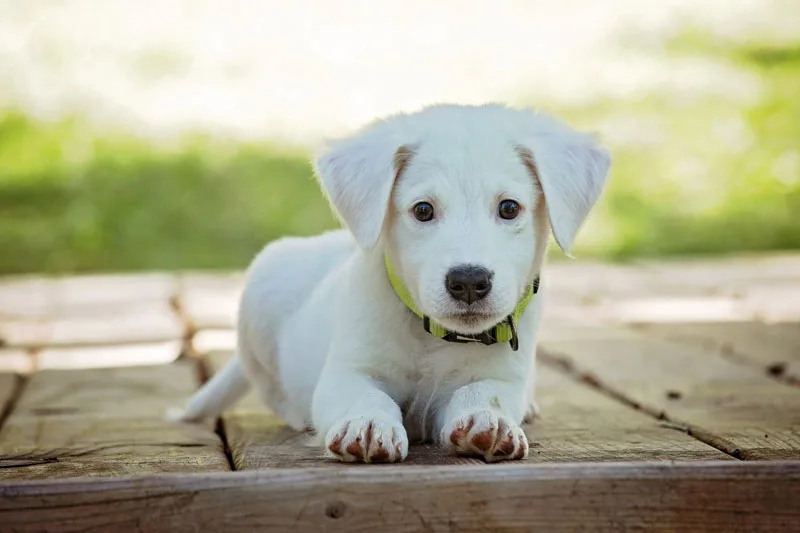
Getting a new puppy can be an exciting time in any home. Caring for your puppy comes with the responsibility to ensure your puppy has the best start in their new environment.
Puppy care is an important aspect of getting a new pet. Although they can be excitable and full on additions to your home, training your new puppy requires full commitment that can take time, but it is also very rewarding.
There are many things to consider when you bring your new puppy home. To help make the process stress free, here are some puppy care tips for new owners:
Work with your vet
Be sure to register your new puppy with a vet to ensure it receives the best care during their early stages. Working in partnership with your vet is also important, as they are able to cast their expert eye over your new pet during regular check-ups. Regular check-ups help with the rest of your puppy’s development, making sure they receive the essential vaccinations. Be sure to get your puppy micro-chipped at the earliest opportunity. This is now mandatory and could be essential if your puppy ever escapes or runs off when out on a walk.
Puppy interaction
If you have a medium or large breed puppy, it’s important during the development stage (when bones are developing and articular cartilage surfaces are fragile), that all members of the family are aware not to over exercise your new puppy or play too boisterously with them. It’s also best to avoid encouraging your puppy to jump up at you on his/her hind legs as this can put uneven stress on both hind and front legs at a young age.
In the home
To help your puppy become used to their new home, create designated eating and sleeping areas for them. Choose an appropriate sleeping area, which is safe and has suitable bedding and still in view of the family, so that they feel safe. Always make sure that your puppy has a fresh supply of water. Stair gates can be a great addition to prevent your puppy from climbing the stairs and injuring themselves, as well as keeping them away from ‘out of bounds’ areas around the home.
Diet
Your new puppy will probably eat three to four times a day, but you could reduce this to two to fit with your daily routine. If unsure, you should consult your vet to find out what is best for your particular breed of dog. Puppy food is higher in protein and enriched with vitamins, minerals and fats, which are essential for the growth of your new puppy. You can usually switch to adult food at around six months, but your vet will be able to advise on this as certain breeds mature quicker than others.
Training
It’s important to start your puppy training as soon as you bring your new pet home, whether it’s toilet or behavioural training. Building up a routine with your puppy will help them to get used to associating the garden with going to the toilet. Be sure to take your puppy outside frequently during the day, as soon as they wake-up and after meals. Always go outside with your puppy and don’t leave them on their own in the garden in case they escape or eat something that might make them ill.
Socialising can be an important part of puppy training. This can include, introducing your new puppy to other people, as well as other dogs. Taking your new dog to puppy classes can help get them used to other dogs to reduce unruly behaviour whilst out walking.
Leaving your puppy alone
Although it’s not advised to leave dogs alone for more than 4 hours, sometimes this cannot be helped. If you have to leave your puppy on their own for a few hours a day, it is important to get them used to this as soon as possible. Start with short periods of time and work up to longer spells. Be sure to leave them with toys to distract them whilst you are gone.
Exercise
It is recommended that you wait one to two weeks before starting to walk your puppy. This ensures that they have had their last vaccination booster. In the early stages, long walks or runs should be avoided. Mild exercise routines together with a balanced healthy diet are part of a sensible and responsible way to care for your dog as they begin their lives with you.
These are all areas that can be discussed with your vet as they are best placed to understand particular needs of your pet. Ask your vet for more information on additional puppy care tips and how Nutraquin can help with your puppy’s joint development. Find out how Nutramind can also help to support cognitive function for training and learning.
